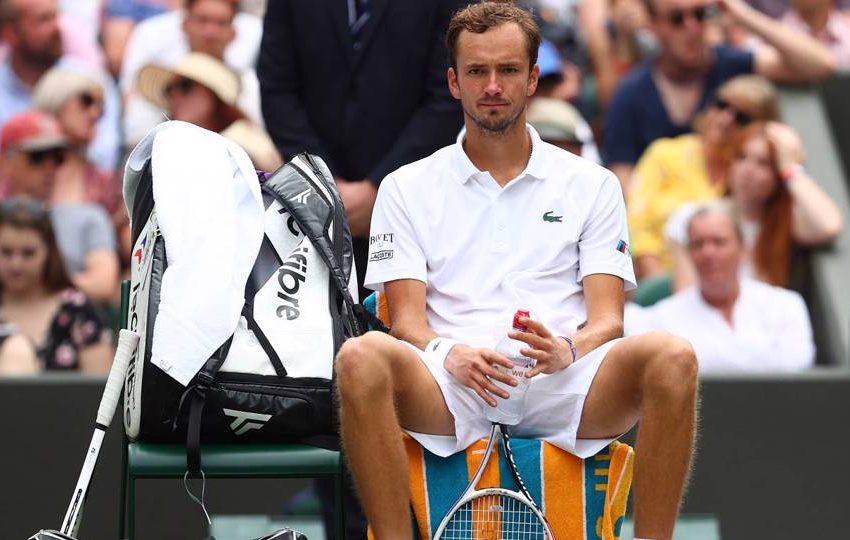In an interesting recent article in the Times Literary Supplement, the Ukrainian novelist, essayist, and poet Oksana Zabuzhko took Western readers to task for not recognising Russia’s barbarism. Too many people, Zabuzhko argued, believe that the great Russian writers, such as Fyodor Dostoevsky, expressed humanistic European values. They have not looked deeply enough into the savage Russian soul.
Zabuzhko believes that Russian literature represents “an ancient culture in which people only breathe under water and have a banal hatred for those who have lungs instead of gills.” Russia’s invasion of Ukraine can be understood only through the prism of “Dostoevskyism,” defined as “an explosion of pure, distilled evil and long suppressed hatred and envy.”
This type of cultural analysis has a rather old-fashioned ring. It used to be common to interpret the Third Reich as a sickness of the German soul: “from Luther to Hitler,” the thesis went, implying that Luther’s anti-Semitism sowed the seeds of Nazism some 350 years before Hitler was born. But few people nowadays take such a crude view of German history.
Many applied similar ideas with even greater conviction to Japan in the 1940s. Since Japan lacked a dictator like Hitler or a party resembling the Nazis, critics blamed the country’s culture for its twentieth-century militarism. While Germans could be coaxed back from their murderous cult of racism into the European tradition of Mozart and Goethe, Japan was supposedly different. There, only massive reeducation could cure an ancient cultural sickness related to the samurai spirit and “feudalism.”
After World War II, the US occupation authorities banned symptoms of this alleged disease, such as Kabuki plays, swordfight dramas, and even images of the hallowed Mount Fuji. This irritated many Japanese, but most were having enough trouble surviving the harsh postwar years to push back against the bans, which were soon lifted anyway.
Both Germany and Japan still have far-right groups that strut around in combat gear, but so do most Western democracies. Otherwise, it is difficult to find any trace of the samurai spirit in today’s Japan or of racial barbarism in contemporary Germany. On the contrary, both countries are remarkably pacific, with Germany more welcoming to immigrants and refugees than most other European countries.
This does not mean that cultural reeducation worked. Rather, it suggests that the cultural analysis was always misguided. After all, Nazis read Goethe and listened to Mozart, too. And Japan’s war in Asia was hardly the result of watching too many swordfight dramas.
Even a cursory survey of world history shows that savage behaviour and murderous regimes can arise anywhere. Some of the worst atrocities during the Thirty Years’ War in the seventeenth century were committed by Swedes.
Highly civilised people can turn into barbarians when demagogues and dictators exploit their fears and trigger their most atavistic instincts. Rape, torture, and massacres often happen when soldiers invade foreign countries. Commanding officers sometimes actively encourage such behaviour to terrorise an enemy into submission. And sometimes it occurs when the officer corps loses control and discipline breaks down. Japanese and Germans know this, as do Serbs, Koreans, Americans, Russians, and many others.
True, some countries have longer histories of political oppression than others. Russians have not been lucky in this respect. One might say that powerful elements in the Russian Orthodox Church have been complicit in oppressive rule, from the czars to President Vladimir Putin. But to claim that Putin’s misrule (or Stalin’s, for that matter) is a natural and inevitable outcome of Russian culture is to fall into the same trap as the “from Luther to Hitler” theorists. As postwar Germany and Japan have shown, nothing is inevitable, and “national character” can change quickly.
Fetishising Russian culture as the savage root of Putin’s aggression and the brutal war in Ukraine is as dangerous as it is misguided. Canceling performances of Russian composers, excluding Russian artists and tennis players, or fulminating against Russian literature plays into the Kremlin dictator’s hands.
No culture, least of all Russian culture, is monolithic. The European Enlightenment brushed St. Petersburg, and many Russian writers, composers, and artists have looked for inspiration to France, Germany, and Britain. Then there is Russian culture’s Slavophile side, suspicious and resentful of the West, which has been the source of some great romantic and spiritual art, as well as fostering violent paranoia. Dostoevsky’s novels are a mixture of both.
Putin channels the paranoid tendency. He would like all Russians to feel that the arrogant, decadent, depraved West is out to dominate them and crush their proud spirit. He appeals to a persecution complex that is easily roused but not uniquely Russian.
Both Nazi and Japanese WWII propaganda were soaked in self-pity. Putin’s version feeds off traumatic memories of the terrible German invasion of the Soviet Union in 1941, and is also deeply personal. As a former KGB officer, he sees the Soviet Union’s demise as an affront to everything he stood for. But, much as he would be flattered by the idea, Putin does not represent Russian culture.
To see the Ukraine war as a conflict not only with Putin’s regime but also with Russian culture, and to treat all Russians as existential enemies, is a great gift to the Kremlin. It strengthens the persecution complex Putin needs to keep the Russian people on his side. Moreover, it fosters the kind of attitudes that the Allies mistook in postwar Germany and Japan for the markers of an essential and immutable national character.
We must avoid making that mistake again. Instead, we should celebrate the masterpieces of Russian art, music, dance, and literature, and save our condemnation for those, like Putin and his inner circle, who have poisoned the well that produced them.
The writer is an editor and author.
©project syndicate
